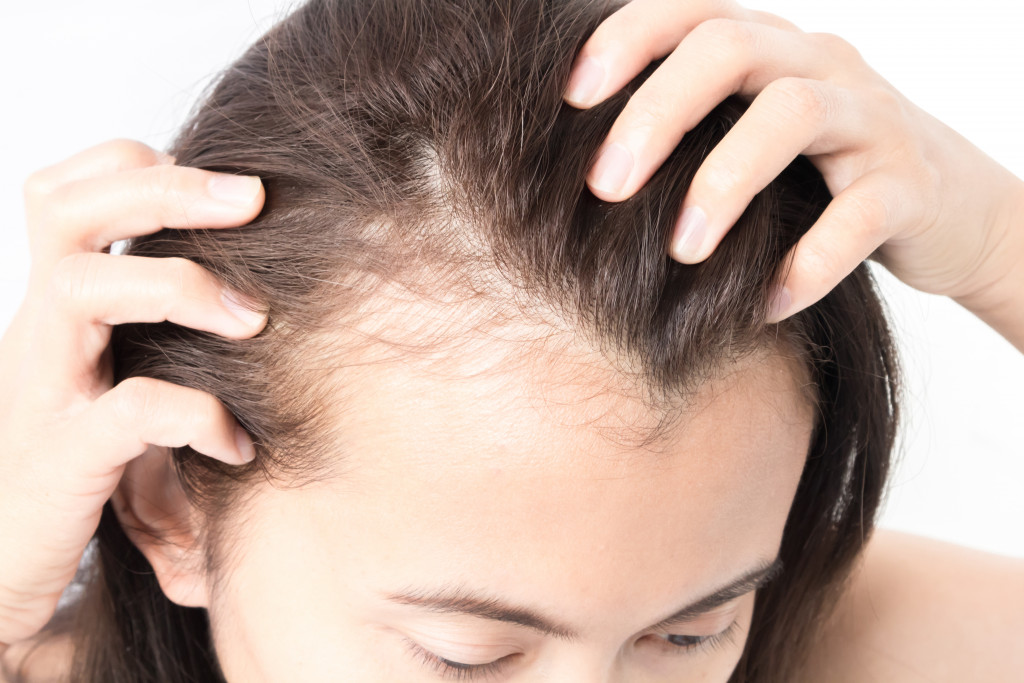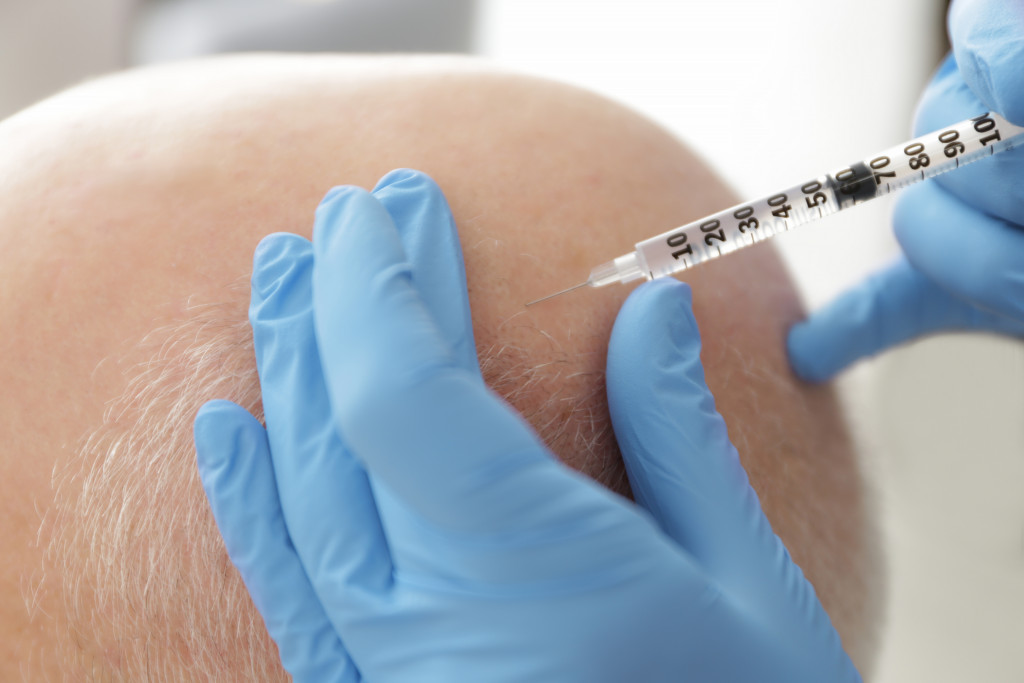• Hair loss is common for men and women of all ages, with genetics, hormones, stress, or illness as potential causes.
• Making lifestyle changes such as eating healthy food and exercising regularly can prevent or slow down hair loss.
• Medications, topical solutions, light therapy, and hair transplant surgeries are some treatment options for hair loss.
• Talk to your doctor about your best options, and be patient as hair growth takes some time.
Hair loss is a common issue for men and women of all ages. For some, hair loss can be extreme and lead to balding. Several factors, such as genetics, age, hormones, stress, or illness, can cause balding. Understanding the cause of your hair loss is key to finding an effective solution. While many treatments are available, you need to find the one that works best for you.
Identifying the Cause of Your Hair Loss
The most important step in treating hair loss is identifying its underlying cause. It could be genetic, hormonal, or due to lifestyle or environmental factors like stress or poor nutrition.
Genetics
This is the most common hair loss caused by certain genes passed down from your parents. It can start as early as the teenage years and progress gradually. You may notice a receding hairline, thinning of the temples, or bald spots. Additionally, if you observe your family history and see that hair loss runs in the family, you can assume that it might be genetic.
Hormones
Several hormonal changes can lead to hair loss. For example, during pregnancy or menopause, your body’s hormones can become imbalanced and cause temporary shedding. Other medical conditions, such as thyroid disease or anemia, can cause hair loss.
Stress
It’s widely recognized that high-stress levels can cause hair loss as your body cannot use energy efficiently and instead diverts it towards repairing itself. If you notice an increase in shedding after a stressful event, such as a death in the family or a new job, this may be the culprit.
If you’re experiencing sudden or dramatic hair loss, see your doctor immediately—it could be a sign of an underlying health condition that needs attention. In other cases, it may take trial and error before finding the right treatment.

Lifestyle Changes
If you’re worried about hair loss, there are some lifestyle changes you can make to help slow it down or prevent it from happening.
Eating Healthy and Exercising
The food you eat and your activities impact your body, including the health of your hair. Eating a balanced diet full of nutrient-rich foods and exercising regularly will help keep your hair healthy and strong. Particular foods to eat for healthy hair and scalp are salmon, spinach, oatmeal, and sweet potatoes.
Avoid Too Much Styling Products
Harsh hair products or treatments like permanent waves, relaxers, and dyes can cause irritation and damage to the scalp. Too much heat from blow-dryers or hot styling tools can also cause your hair to become brittle and break off. Try using more natural products and methods for styling, such as air drying or braiding your hair instead of heat styling.
Treatment Options
If you have tried everything and still experience hair loss, then it’s time to explore treatment options. Depending on the cause and severity of your hair loss, treatments like medications, topical solutions, light therapy, or even surgery may be recommended. Talk to your doctor about what would be the best options for you.

Medications
Medications like Rogaine (minoxidil) and Propecia (finasteride) can help reduce genetic balding in both men and women. These medications will provide gradual results and must be taken continuously to be effective.
Topicals
Various topical solutions are available over-the-counter or through a doctor’s prescription. These include shampoos, lotions, and creams that nourish the scalp and reduce inflammation. These products stimulate the hair follicles, which helps create new growth.
Light Therapy
Red light therapy is becoming increasingly popular for hair restoration. This non-invasive treatment uses low-level laser energy to stimulate hair follicles, increasing blood flow and promoting hair growth. It’s a safe, painless treatment often used with medications or hair restoration surgery.
Hair Transplant
There are also surgical options such as follicular unit extraction (FUE), scalp reduction surgery, and flap surgery which involve transplanting healthy hair follicles from one area of your head to another where balding is more severe. A hair transplant clinic in Singapore performs these hair transplant surgeries using the latest techniques and technology that will restore hair growth in a natural-looking way. You can look into it and discuss it with your doctor if you are considering this option.
No matter what type of hair loss you are experiencing, there is hope. Talk to your doctor about the best options, and remember that it’s important to stay patient—hair growth takes time. You can feel confident in your skin with commitment and consistency.



















